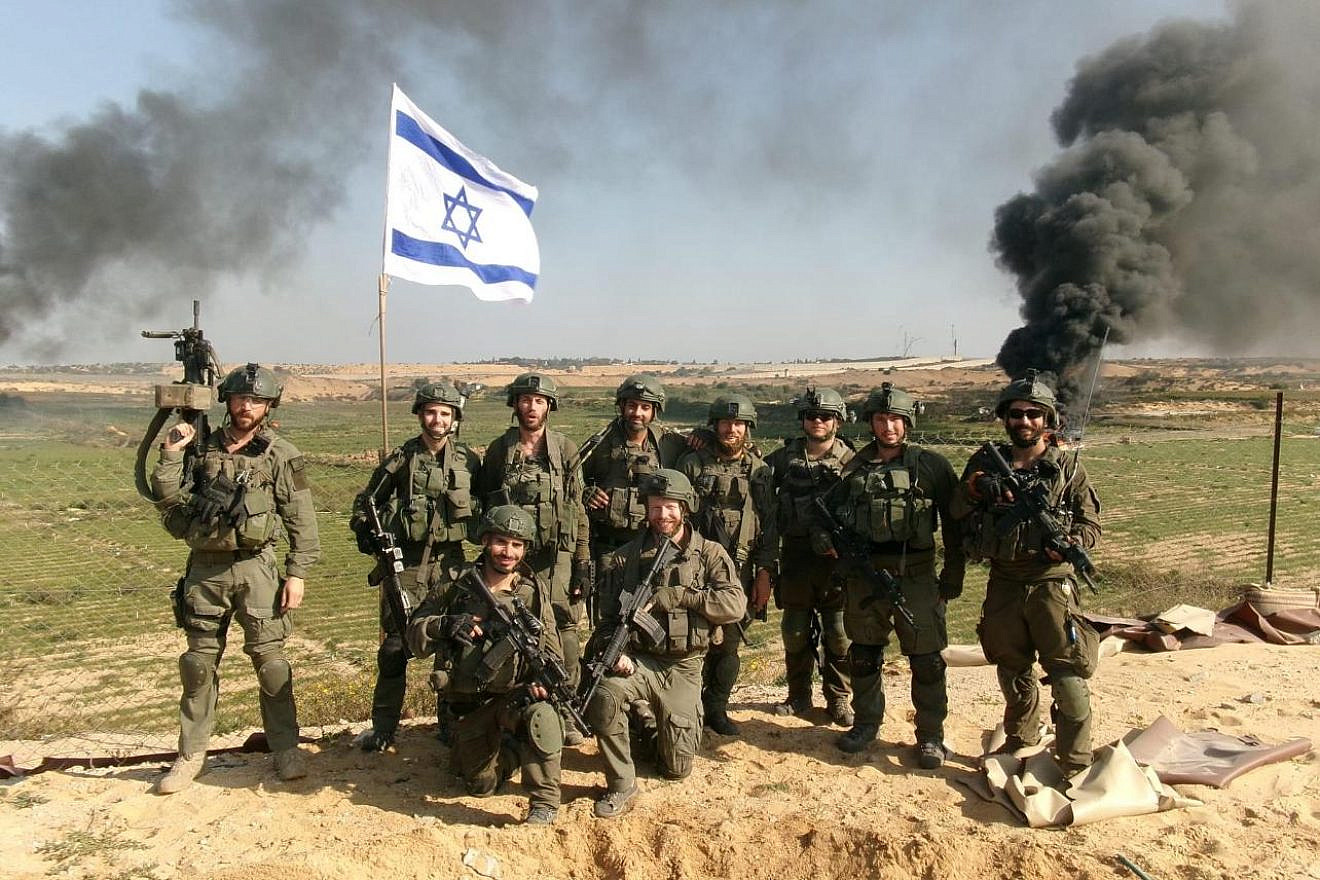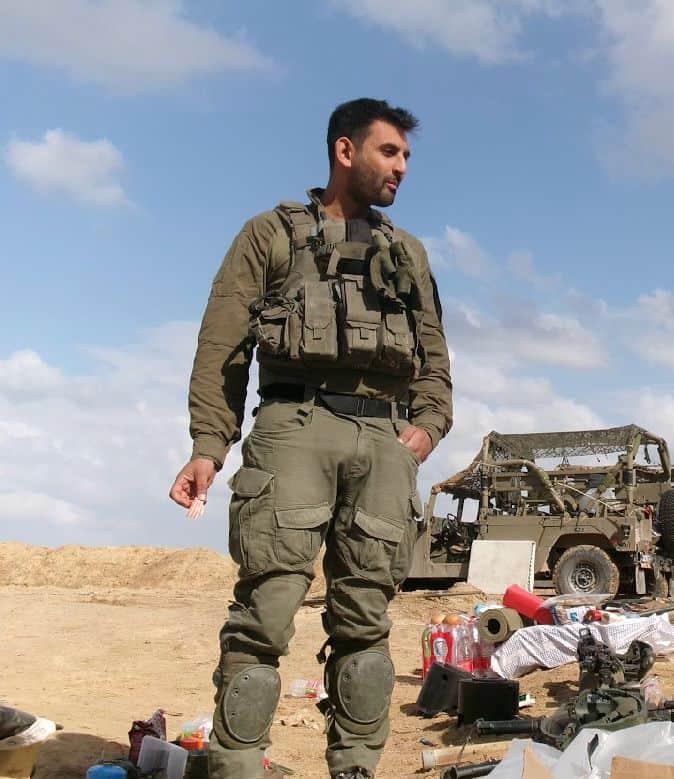It was at the very end of their two-month stint in Gaza that the reservists of an elite Israeli reconnaissance unit found themselves in an abandoned Hamas training base just half a mile from the Israeli border.
It was the easiest part of their mission but also one of the most emotional. The terrorists were gone. It was from this makeshift base that Hamas stormed into southwestern Israel on the morning of Oct. 7, killing 1,200 people and abducting about 250 others.
For the small reservist unit, as for many of the other soldiers fighting in Gaza, it was also something deeply personal. One of their comrades, Ziv Hajbi, 29, had been murdered at the Nova music festival at Kibbutz Re’im on Oct. 7, which he had attended as a civilian. Now they had come full circle.

Normalcy ends
American-born Haim Brenner, 29, was vacationing in Italy with his wife on the nightmare weekend of Hamas’s onslaught. Brenner immigrated to Israel at 18 from the suburbs of Boston, and enlisted in the Israel Defense Forces.
As he awoke, his wife screamed at him to turn on his cell phone, where he saw messages of the attack underway, including pleas from his cousin, who was with her husband in a sealed room in an Israeli kibbutz facing Gaza. She was asking where the army was. He knew something was very wrong, as his Shabbat-observant cousin had never texted him before on the Jewish day of rest.
Brenner’s return flight had been canceled, but his wife got them on a flight the next day. “I packed a bag, grabbed my gear and headed to my base” upon arrival in the country, he said.
At the same time, Netanel Sharvit, 28, was also making his way to the base, from Jerusalem. His phone was also buzzing with messages and videos, along with word that Hajbi, their comrade, was missing.
“We rushed to the base without being called up; it was an hour of need,” Sharvit told JNS.
The soldiers began three weeks of training on the border area, itching to get into Gaza and to try to locate Hajbi. As the days went by, their concern only mounted. “The options were bad and worse,” said Brenner.
Within a week, they were notified that the 29-year-old Hajbi’s body had been found. Two weeks later, they were in Gaza.

A ‘Spielberg movie’
Under cover of darkness, they entered Gaza on Nov. 1, encountering Hamas fire and swaths of destruction. The stench of death was everywhere.
“It was like a Spielberg suspense and horror movie,” Sharvit said. “A total apocalypse.”
The unit came under intense fire and everyone tried to take cover, running into demolished buildings, some of which were booby-trapped. In between intermittent gunfights, searches uncovered hidden caches of weapons and countless shafts leading to underground tunnels.
In one of the firefights, a 32-year-old reservist from their battalion, with a two-year-old child at home, was fatally wounded and Sharvit was called to help evacuate him. His last words were “I’m hurt.”
The two reservists both said that they were struck by how well many of the Gazans had lived before the war began, and how blurred the lines were between civilian and combatant in Gaza.
“I was raised on the stories of how poor the Gazans were and yet there were some houses that were nicer than I could afford,” said Sharvit. “It is something of an illusion that we are fighting an enemy that is using civilians as hostages because everywhere you go in Gaza the lines are very blurred,” said Brunner.
The American-born Brunner, an only child who needed his father’s signature to serve in a combat unit and who was raised in a liberal interfaith environment in Easton, Mass., said that he had been especially disillusioned by the discourse in the United States blaming Israel for Palestinian civilian casualties.
“It doesn’t matter what we will do or won’t do,” he said. “We will be blamed.”
Closing the circle
As they headed back to the border after two months in Gaza, their last mission, searching through the abandoned Hamas base, brought home memories of their fallen comrade and reminded them again why they were in Gaza in the first place. “Here we were where the terrorists had started out,” said Sharvit. “We had done our part.”
Back home in Jerusalem and reunited with their wives, the two reservists said they have very mixed feelings about the future, as they await a possible second call-up by March.
“We did a lot, but the work is not finished,” said Brunner. “We are united in the army, but when you come home and you hear the news and you hear the politicians who are disconnected from the people, I only hope that everything that we did will not be in vain,” said Sharvit.


























